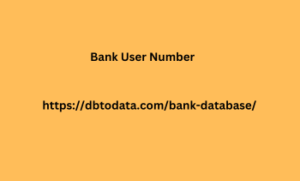Are you looking to integrate Facebook OAuth into your Node.js application seamlessly? Look no further! In this comprehensive guide, we will walk you through the process step by step, ensuring you have all the knowledge and tools necessary to implement Facebook OAuth successfully.
What is Facebook OAuth?
Facebook OAuth is an authentication protocol that allows users to authenticate themselves with a third-party application, such as your Node.js app, using their Facebook credentials. This eliminates the need for users to create a new account and remember yet another username and password combination.
Why Use Facebook OAuth with Node.js?
Implementing Facebook OAuth with Bank User Number Node.js offers several advantages. First and foremost, it provides a seamless and convenient way for users to log in to your application. Additionally, using Facebook OAuth can increase user trust and confidence in your app, as Facebook is a well-known and widely used platform for authentication.
Getting Started with Facebook OAuth in Node.js
To get started with Facebook OAuth Algeria WhatsApp Number List in Node.js, you will first need to create a new Facebook App in the Facebook Developer Console. Once you have created your app, you will be provided with a Client ID and Client Secret that you will need to use in your Node.js application.
Next, you will need to install the passport and passport-facebook packages in your Node.js project. These packages will allow you to easily authenticate users using Facebook OAuth.
npm install passport passport-facebook
Implementing Facebook OAuth in Node.js
Now that you have set up your Facebook App and installed the necessary packages, it’s time to implement Facebook OAuth in your Node.js application. Below is a simplified example of how you can set up Facebook OAuth using the passport and passport-facebook packages:
- Initialize Passport.js
const passport = require('passport');
const FacebookStrategy = require('passport-facebook').Strategy;
passport.use(new FacebookStrategy({
clientID: FACEBOOK_APP_ID,
clientSecret: FACEBOOK_APP_SECRET,
callbackURL: "http://localhost:3000/auth/facebook/callback"
},
function(accessToken, refreshToken, profile, done) {
// Verify user and create session
return done(null, user);
}
));
- Authenticate Routes
app.get('/auth/facebook',
passport.authenticate('facebook'));
app.get('/auth/facebook/callback',
passport.authenticate('facebook', { successRedirect: '/profile', failureRedirect: '/' }));
Conclusion
By following the steps outlined in this guide, you can successfully implement Facebook OAuth in your Node.js application. Facebook OAuth offers a secure and convenient way for users to log in to your app, enhancing the overall user experience. Start integrating Facebook OAuth today and take your Node.js app to the next level!
Meta Description: Learn how to seamlessly integrate Facebook OAuth with your Node.js application. Follow our step-by-step guide for successful implementation.
So, are you ready to elevate your Node.js application with Facebook OAuth? The process may seem daunting at first, but with our detailed guide and expert tips, you’ll be implementing Facebook OAuth like a pro in no time! Start reaping the benefits of seamless authentication and increased user trust today – your users will thank you for it!






